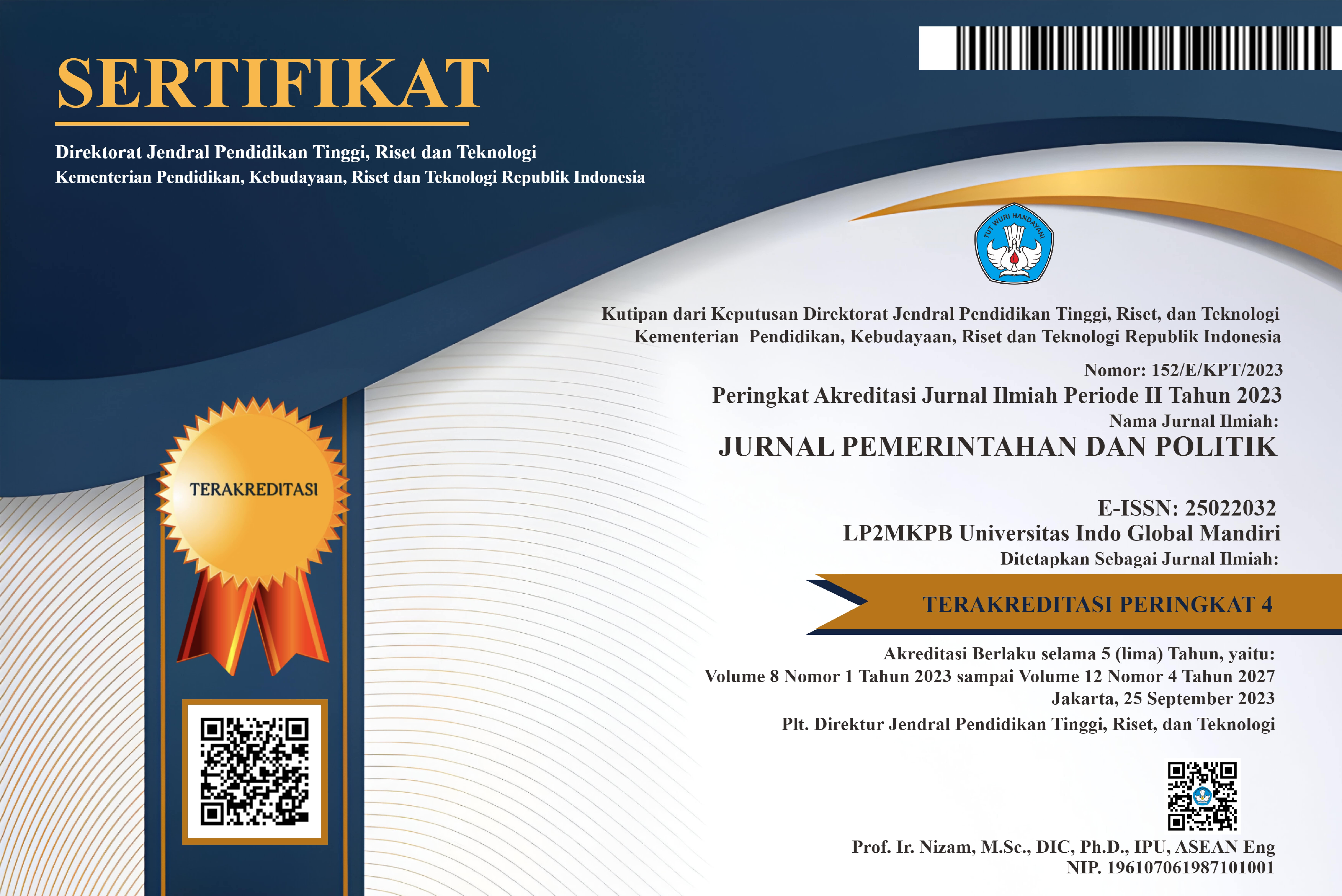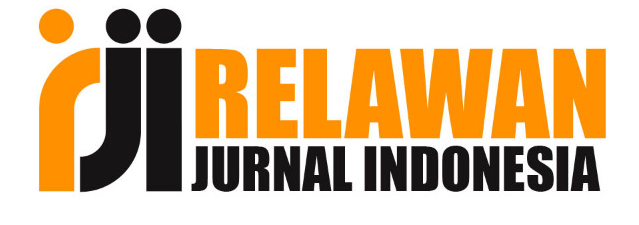Literasi Digital sebagai Upaya Membangun Karakter Masyarakat Digital
DOI:
https://doi.org/10.36982/jpg.v8i3.3236Keywords:
Digital Literacy, Character of SocietyAbstract
In an effort to shape the culture of a digital society in Palembang, this study examines digital literacy. The purpose of this study is: Analyze the supporting and impeding factors for this program. Identify the implementation of digital literacy programs as an endeavor to develop the character of the digital society in the city of Palembang. In this study, a qualitative descriptive methodology was utilized to describe and assess how the Digital Literacy program was implemented in an effort to shape the characteristics of a digital society in Palembang. The analytical methods employed involve qualitative data analysis methods using FGD, interviews, and documentation. Additionally, the NVivo 12 Plus and SmartPLS analysis complement this research data. The theory applied is Merilee S. Grindle's theory of policy implementation. Digital Skills, Digital Culture, Digital Ethics, and Digital Safety are some of the supporting indicators in the Kominfo RI framework for digital literacy. The study's findings show that promoting digital literacy is a movement that cannot be carried out by one institution alone; instead, the government, society, and stakeholders all need to get involved if we want to avoid falling behind. People who are learning to use digital operating systems in daily life are concerned with developing their digital skills. The government is known to be interested in creating news in the media or online, therefore it requires journalists who are impartial and can speak the truth without instilling fear. Still other discoveries.
References
Adikara, G. J., Kurnia, N., Adhrianti, L., Astuty, S., Wijayanto, X. A., Desiana, F., & Astuti, S. I. (2021). Aman bermedia digital (Gilang Jiwana Adikara & Novi Kurnia (ed.)). Dirjen Aplikasi Informatika.
Ameliah, R., Adi Hegara, R., Rahmawati, I., & Dkk. (2021). Status Literasi Digital di Indonesia Ringkasan Eksekutif. Indeks Literasi Digital Indonesia, 9. https://katadata.co.id/StatusLiterasiDigital
Astuti, S. I., Prananingrum, E. N., Astuti, S. I., Prananingrum, E. N., Ratri, L., Nurhajati, L., Lotulung, L. J. H., & Kurnia, N. (2021). Budaya Bermedia Digital (E. N. P. Santi Indra Astuti (ed.)). Kementerian Komunikasi dan Informatika. http://literasidigital.id/books/modul-budayabermedia-digital/
B.Miles, Matthew, A.Michael Huberman, J. S. (2014). Qualitative Data Analysis A Methods Sourcebook (Helen Salmon (ed.); 3rd ed.). SAGE Publication.
Barrutia, J. M., & Echebarria, C. (2021). Effect of the COVID-19 pandemic on public managers’ attitudes toward digital transformation. Technology in Society, 67, 101776. https://doi.org/10.1016/j.techsoc.2021.101776
Hahn, K. (2021). Social Digitalisation. In Social Digitalisation. https://doi.org/10.1007/978-3-030-79867-3
Kemkominfo. (2016). Undang-Undang Republik Indonesia Nomor 19 Tahun 2016 Tentang Perubahan Atas Undang-Undang Nomor 11 Tahun 2008 Tentang Informasi Dan Transaksi Elektronik. UU No. 19 Tahun 2016, 1, 1–31.
Knihs, E., & Garcia-Holgado, A. (2020). Young People Participation in the Digital Society: a case study in Brazil. Angewandte Chemie International Edition, 6(11), 951–952., 4(April), 10–27. http://wyredproject.eu
Kominfo. (2021). Kerangka Kerja Acuan Penyelenggaraan Literasi Digital 2021. In -: Vol.
Kusumastuti, A., & Khoiron, A. M. (2019). Metode Penelitian Kualitatif (Fitratun Annisya (ed.)).
Kusumastuti, F., Astuti, S. I., Astuti, Y. D., Birowo, M. A., Esti, L., Hartanti, P., Made, N., Amanda, R., & Kurnia, N. (2021). Modul Etis bermedia digital (S. I. A. Frida Kusumaastuti (ed.)). Kementerian Komunikasi dan Informatika. http://literasidigital.id/books/modul-etis-bermedia-digital/
Li, J., Brar, A., & Roihan, N. (2021). The Use of Digital Technology to Enhance Language and Literacy Skills for Indigenous People: A systematic literature review. Computers and Education Open, 2(August 2020), 100035. https://doi.org/10.1016/j.caeo.2021.100035
Mawadi. (2018). Kota Palembang Dalam Angka 2022. ISSN: 2527, 43–52.
Monggilo, Z. M. Z. (2021). Cakap Bermedia Digital (N. K. Zainuddin Muda Z. Monggilo (ed.)). Dirjen Aplikasi Informatika. http://literasidigital.id/books/modul-cakap-bermedia-digital/
Morris, T. H., & Rohs, M. (2021). Digitization bolstering self-directed learning for information literate adults–A systematic review. Computers and Education Open, 2, 100048. https://doi.org/10.1016/j.caeo.2021.100048
Nurmansyah, G., Rodliyah, N., & Hapsari, R. A. (2019). Pengantar Antropologi, Sebuah Ikhtisar Mengenal Antropologi. CV. Anugrah Utama Raharja.












